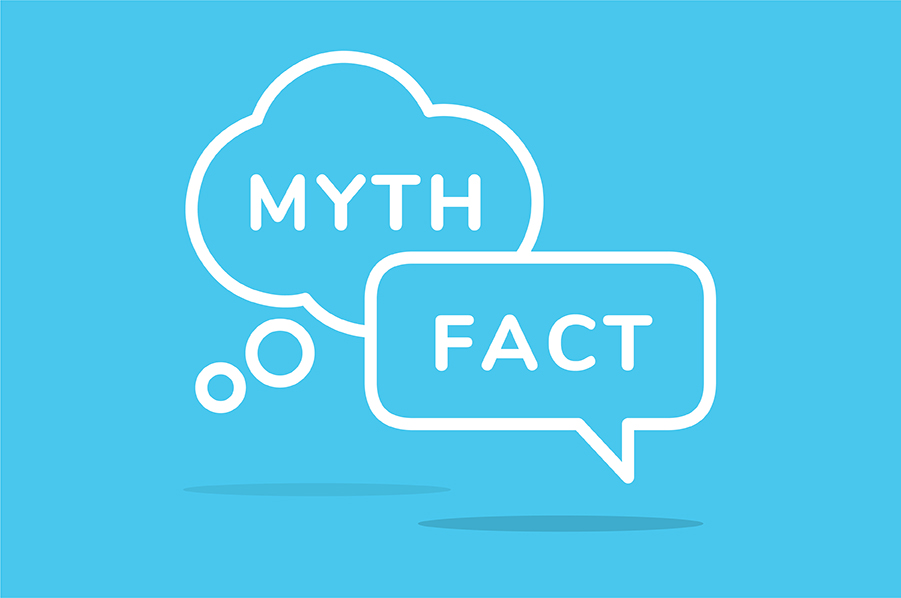
by:
According to legend, the first reverse mortgage was written by a banker in 1961 to help the widow of his high school football coach remain in her home. But it wasn’t until the late 1980s that Congress approved regulations and reverse mortgages became more common. Today, almost 50,000 reverse mortgages are made every year. Despite their growing popularity, myths and misunderstandings persist.
Here are the top five reverse mortgage myths we hear all the time.
MYTH 1
The bank will own my home if I get a reverse mortgage.
False: As with any mortgage, you retain full ownership of the home as long as you maintain your mortgage agreement.*
MYTH 2
My heirs will not be able to inherit my home if I get a reverse mortgage.
False: You can still designate heirs in your end of life agreements. As with any property, heirs receive the property along with any equity or debt.
MYTH 3
If one spouse passes, the other can lose the home.
False: : FHA reverse mortgages (also called HECM) have safeguards in place to ensure the non-borrowing spouse can remain in a home as long as all loan agreements are otherwise maintained.
MYTH 4
A reverse mortgage eliminates my mortgage payment, so I’m no longer financially responsible for my home.
False: Even though you do not pay the bank monthly payments, you are still responsible for property taxes, homeowners insurance, Homeowners Association fees (HOA) and other property maintenance costs. However, with a reverse mortgage, an account can be set up to help ensure the funds are available when you need them.†
MYTH 5
Reverse mortgages are for people who have financial difficulties.
False: Reverse mortgages convert home equity—money you’ve invested or gained from your home—into funds that can be withdrawn, tax-free, as part of your overall retirement plan.
If you or a loved one could benefit from a reverse mortgage, please reach out to your local PRMI Loan Officer for more information.
*Consumers must continue to pay property taxes, homeowners insurance, applicable HOA fees and home maintenance. PRMI is not a financial advisor or planner.
†The loan is subject to foreclosure for failure to pay taxes and insurance to maintain the property and insurance and to comply with the terms of the loan.
‡Consumers remain responsible for property taxes, homeowner’s insurance, and home maintenance.
‡This ad is not from HUD or FHA and was not approved by HUD or any government agency. Reverse mortgage/HECM loan products are not available in the State of Massachusetts. At the conclusion of the term of the reverse mortgage contract, some or all of the equity in the property of the reverse mortgage no longer belongs to the borrower. The borrower may need to sell or transfer the property to repay the proceeds of the reverse mortgage from the proceeds of the sale or transfer, or the borrower must repay the reverse mortgage with interest from other assets. The lender will charge an origination fee, a mortgage insurance premium, closing costs, or servicing fees for the reverse mortgage. All or any of these may be added to the balance on the reverse mortgage loan. The balance grows over time, and the lender charges interest on the outstanding loan balance. The borrower retains title to the property that is the subject of the reverse mortgage until the borrower sells or transfers the property. Therefore, this individual is responsible for paying property taxes, insurance, maintenance and related taxes. Failure to pay these amounts may cause the reverse mortgage loan to become immediately due and may subject the property to a tax lien, other encumbrance, or possible foreclosure. Interest on a reverse mortgage is not deductible from income tax returns until all or part of the reverse mortgage loan is repaid.